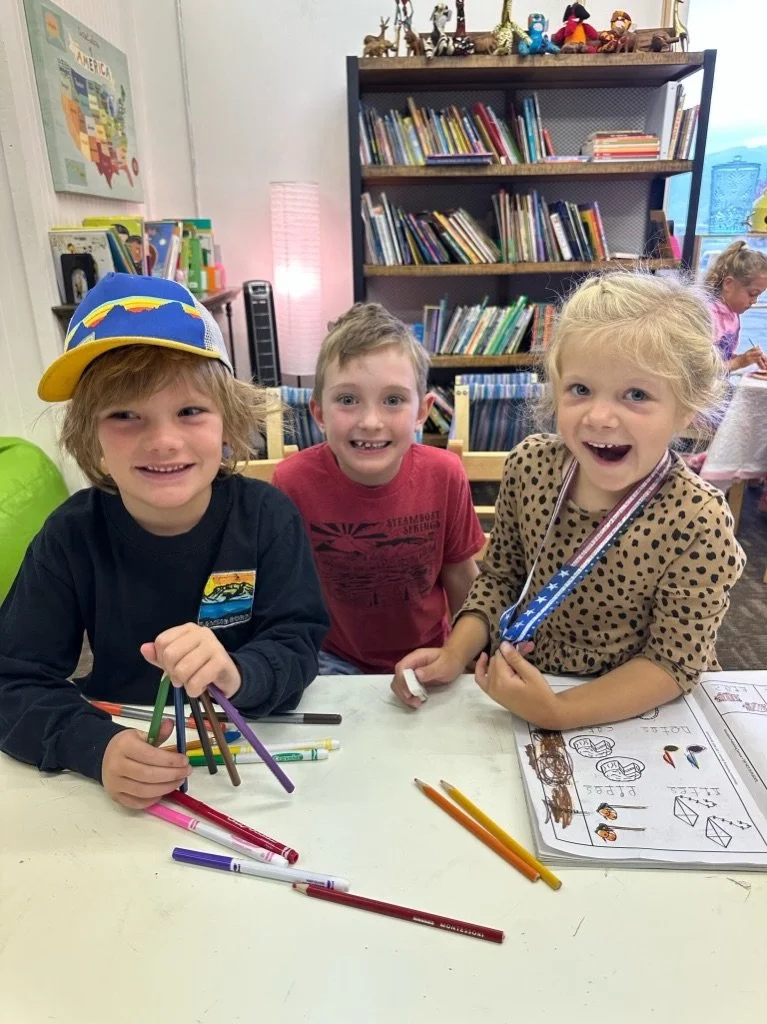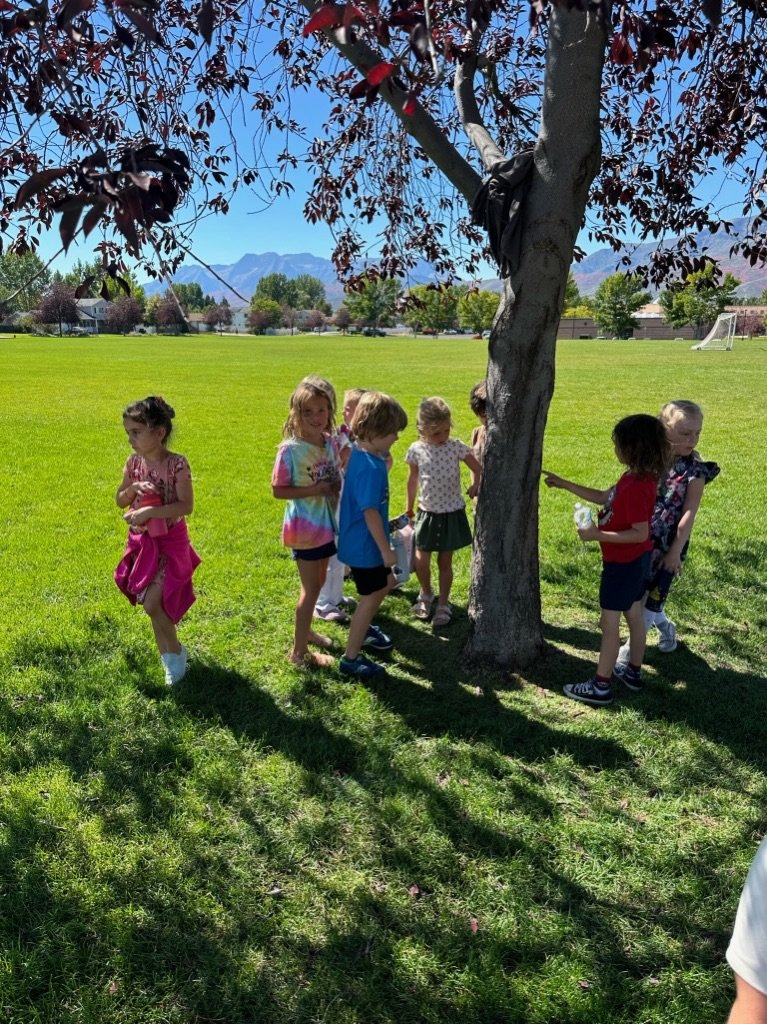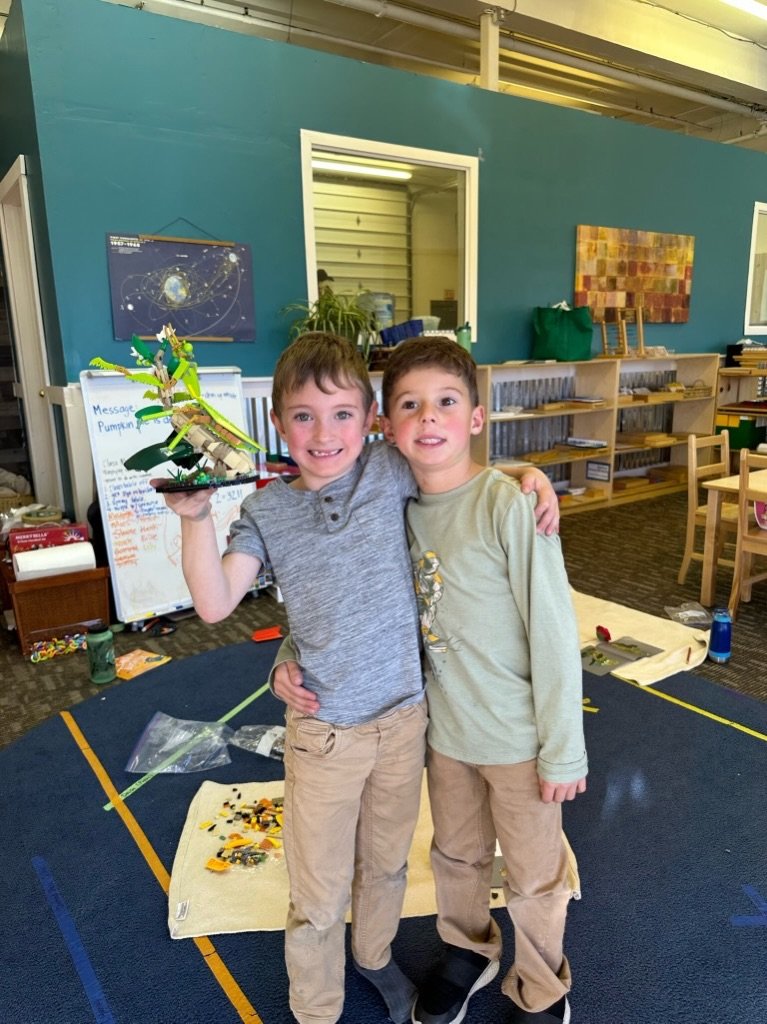Lower Elementary Program
For students graduating from the Early Childhood program, the Lower Elementary program is a natural progression and expands upon their prior learning.
Students new to Montessori soon feel comfortable in a classroom with plenty of opportunities to learn the excitement for guiding their own learning and having their voice matter through participation within their classroom community.
Teachers guide children through a rigorous curriculum that is customized to each child's interests and abilities.
Teachers track student's progress against benchmarks and program expectations including academic preparedness, independence, confidence, citizenship, and intrinsic motivation.
Practical Life
Practical life skills in the Elementary program shift from a focus on fine motor skills and self-care to learning how to organize one's time, how to use a work plan, and how to be a part of a kind and gracious community.
Language
The elementary level student takes their writing and reading to the next level. Students learn about grammar and the mechanics of writing, all while refining their spelling skills.
Students focus on using these skills and reading and learning how to compare and contrast and think critically about their own ideas. Then they are invited to present their ideas by making informal and formal presentations to their peers.
Math
Students are eager to touch and explore the beautiful Montessori math materials. Teachers provide custom lessons meeting each child precisely where they are in their development.
As in all classroom areas, the focus is for lessons to scaffold from concrete to abstract. Children are set up for a lifetime of mathematic success when they learn about numbers as physical quantities in conjunction with written symbols.
Students expand their numeracy as they learn about place value, mathematical operations, and more complex functions to expand their mathematical awareness.
Science and Social Studies
Elementary students take a deeper dive into the study of geology, geography, physical science, and the studies of zoology, and botany.
The “Great Lessons,” are a series of dramatic stories that explore the origins of the universe, our planet, and the continuous development of human advancement. Students uncover the idea that all living things are interdependent.
Beginning with a study of the timeline of life, students explore the lessons of history and what it means to be a responsible citizen and to find ways to make the world a better, more peaceful place.
Cultural Studies
The Social Studies curriculum begins with scientific theories of how the planet was formed and a deep dive study into our planet's landforms. Children learn about the water cycle and get hands-on exploring models of volcanoes, lakes, islands, bays, and capes.
Once students have a greater understanding of continental geography, we take a deeper dive into the study of each continent's unique cultures, geography, history, zoology and biomes.
Our goal is for children to understand that as humans, we have more commonalities than differences, and our commonalities are what bring us together to make the world a better place.









